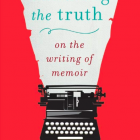How Do You Get Past the Sirens?

Several weeks ago I wrote a post called Why I’m Not On Twitter (Yet). I spoke about my compulsive/addictive tendencies as they relate to the Internet, and expressed my concern that joining Twitter might not be the best thing for me, my family, or my work. I received an overwhelming number of responses, from friends, acquaintances, and strangers; emails, Facebook messages, comments, blog posts; even a couple phone calls.
In one way or another, nearly everyone who wrote to me said the same thing: me too. One writer told me he’d lost several relationships due to his Internet addiction. Another friend told me she hadn’t been able to finish reading a book in over a year; her brain simply couldn’t sit with the prose long enough. Yet another wrote: “You’re onto something…I think about Franzen supergluing a cut-off internet cable into his computer so it could never be hooked up to internet; I think about Dave Eggers, who was so overwhelmed by internet access that he got rid of it and drove once a day to the parking lot of a wifi café to deal with email for an hour.”
A writer I’ve never met asked if I would share any strategies that have helped me to resist the nearly constant beckoning of social media and email. I wrote out the following list. I feel pretty hypocritical posting it. Do I practice these things on a regular basis? No. Not really.
After I sent him this list, I realized these are all what I’d call “Odysseus methods”—a sort of strap-me-to-the-mast approach to dealing with addictive and compulsive behaviors. I suppose there’s nothing wrong with self-restraint plans. Stop up your ears with beeswax, sailors; tie me to the mast and don’t release me, no matter how much I beg. Odysseus was following Circe’s advice. It worked.
But there’s another way to resist jumping overboard. More on that in a minute.
First, my Odysseus list:
1. Drive away from the computer. This is often the only way I can get any drafting done. (I’m talking about my fiction here.) I get in my car and take nothing but my legal pads and some pens, and maybe the book I’m currently reading, and go find a table and chair somewhere. I like background noise, but not too much; ideally, I’ll have at least 3-4 hours ahead of me; cell phone turned OFF, if possible (and it’s only possible when my husband is home with the kids).
2. Unplug the wireless router. If I can’t physically get away (kids home, air-conditioning repair guy coming, etc.), it’s a deterrent. Not always a successful one. It’s pretty easy to reset. Same with internet-disabling programs like Freedom. But if I can get lost enough in the work before I start itching to check email/Facebook etc., there’s hope.
3. Have someone change my passwords. If I can’t get away, and I can’t shut down the wireless (kids/husband working), I ask my husband or close friend to change my Facebook and/or email passwords. It doesn’t help me avoid doing counter-productive things like Googling myself or writers I envy, and I can pretty easily convince someone to sign me in to my email, if I come up with a pressing reason. But again, it’s a deterrent.
4. Wait till 3 p.m. to go online. I almost never manage to do this. But on the rare occasions I’ve done it, it’s worked. The practice keeps my head clear in the mornings, when I’m at my creative peak. I’m usually pretty wasted by the late afternoon, so it’s a good time to deal with less aesthetically demanding tasks. Waiting to check email also helps me to forget about what’s behind (the finished book) and focus on what’s ahead (new work). If I find myself in a rough spot, or the words aren’t coming, and I feel the pull toward going online—even if it involves non-writing work, like school forms, or an amazing soundtrack I’ve been meaning to buy, or a hockey stick I want to order for my son (all just first steps in a downward spiral away from the difficult writing work)—I make a list. It helps assuage the fear that I’ll forget, and functions as an incentive (finish this paragraph and you can check items off your list).
5. Have a no-rules day. Too much denial is a breeding ground for temptation, so I try to have at least one day a week where I don’t have any rules for myself. If I want to spend three hours on Facebook, fine. If I want to Google myself, or look at someone else’s Twitter feed (yep, I do this), or waste an hour looking at shoes and handbags on Zappos, great.
So: that’s my Odysseus list. I’d love to hear any additions you might have.
The other way to keep from jumping ship? I’m calling it the Jason.
You remember Jason and the Argonauts, their quest for the Golden Fleece? In this version of the story, Chiron tells Jason he won’t make it past the sirens without the help of the musician Orpheus. Jason takes him along. When Orpheus hears the first faint strains of the sirens’ song, he pulls out his lyre and begins to play music that is louder and more beautiful. He drowns out an inferior song with something far more aesthetically pleasing.
As long as he’s listening to Orpheus, Jason is free.
My Jason list is just one item:
1. Read a (bound) book. Great sentences—on the printed page—are my Orpheus. Apologies to those of you who have, across the board, made the Kindle/Nook/iPad switch. I say “bound” here for myself because I’ve tried reading on the Kindle app on my daughter’s iPad. And yes, the pages do look like pages, and even sort of turn like pages; and yes, I can, in theory, ignore the fact that I’m holding my email and the entire internet in my hands. (I even saw this recently: a “book smell” spray for electronic readers.)
But let’s say I’m able to “get into” the book on the Kindle and forget everything else. Sentences are important to me. Margin notes (that I can, and will, return to) are important. And the minute I want to highlight, or take notes—well, it’s click, it’s type, it’s where’s-the-Stylus? Those actions (and the medium itself) feel like the actions and medium that have given me so much damn trouble in the first place. Somehow, for me, the digital reading experience isn’t different enough from the experience of, say, reading an email, or researching online. It’s not slow, or visually quiet, or tactile. It’s…well, digital. The very environment is a temptation for me—like an alcoholic walking into a bar but swearing she won’t take a drink.
I will admit this is likely generational. I was born in the 70s; I’m old enough to remember having to go to the library or a bookstore if I wanted to read something; young enough to have started using email in my early 20s. Children who grow up reading only digital text may never struggle in the same way; they simply won’t have that nagging pre-digital memory bank. Though there’s a part of me that wonders if a certain type of concentrated reading–the slow savoring and pondering of a text–will simply die out. (I’ll also note that I struggle more with reading novels in a digital format; short stories and poems are slightly easier, though I still prefer the printed page for pretty much all my literary reading.)
But for me, the beautiful music—the song of Orpheus, the thing that, over and over, keeps me from jumping ship, and inspires me to sit down and make music of my own—is gorgeous language on the physical page. As long as I’m able to read—sustained periods of drinking in text—then I’m saved. So much better than anything the Internet can offer. Great books remind me why I’m here, sitting at this desk. I read the best poets and story writers and novelists (Jack Gilbert, David Means, and Dostoyevsky are what I’m reading now) and get that fire-in-the-belly; the drive, yen, urge—God, what to call it?—a deep creative yearning that demands satisfaction. It feels a bit like erotic desire mixed with nerves. Whatever it is, I don’t want to lose it. I need it.
Compulsive Internet use kills it. At least, it does for me.
In an interview with Marc Smirnoff in the Oxford American, Barry Hannah said: “By the time you get on that typewriter, you should have been almost tasting the typewriter for five blocks.” Yesterday I got up early and read Raymond Carver. Three stories in, I couldn’t wait to get to my legal pad.
Hannah was right: it felt like hunger. I drafted a few sentences. The computer stayed closed.
I thought: Keep me here.



